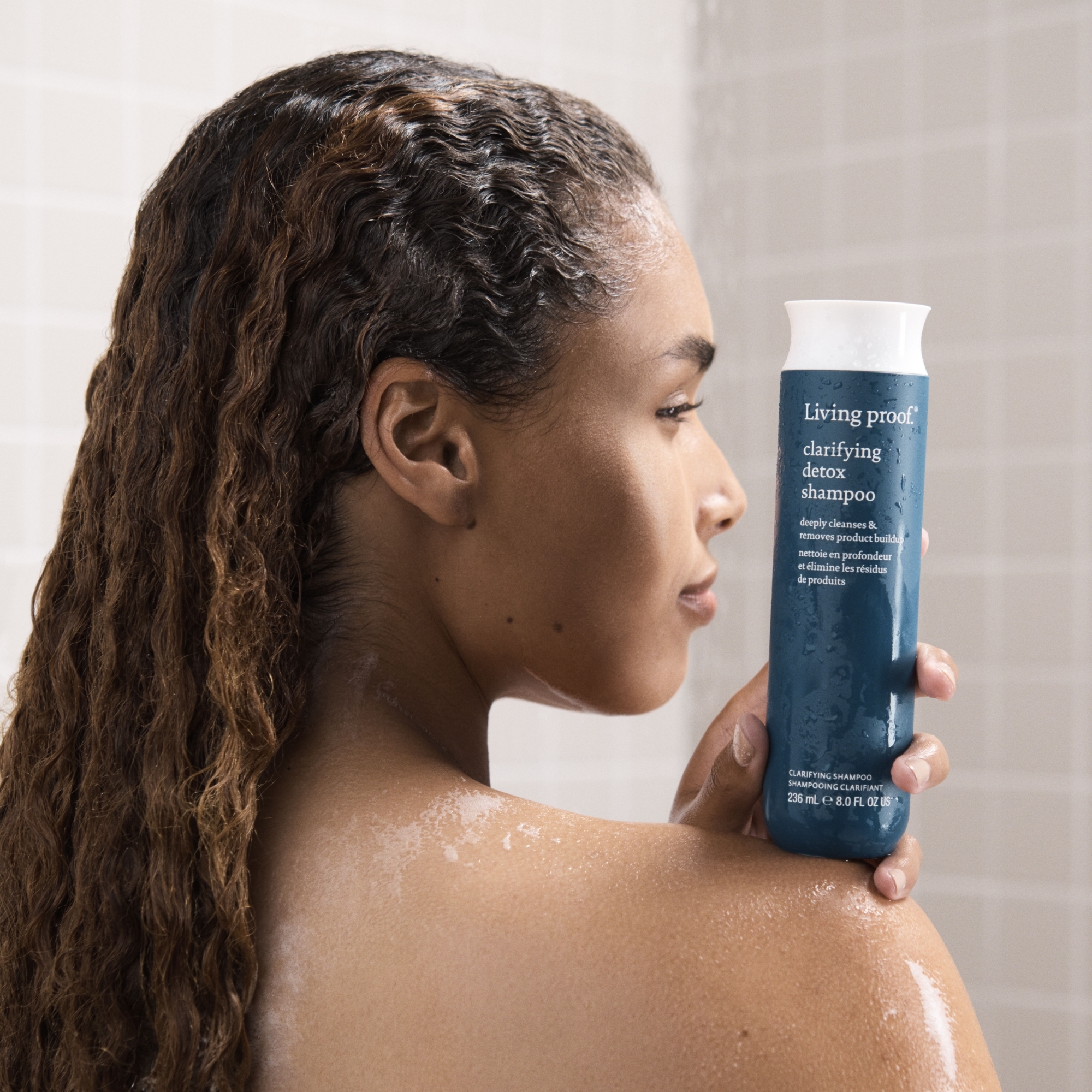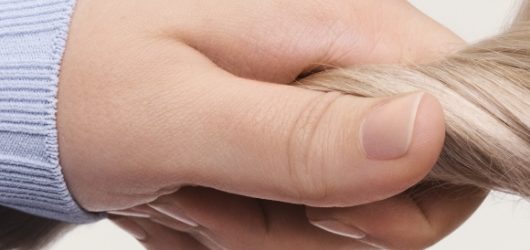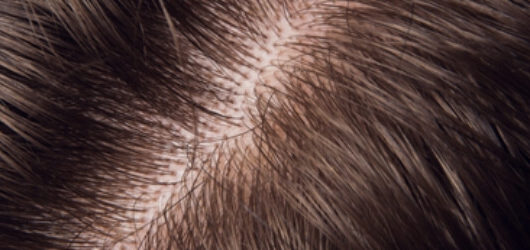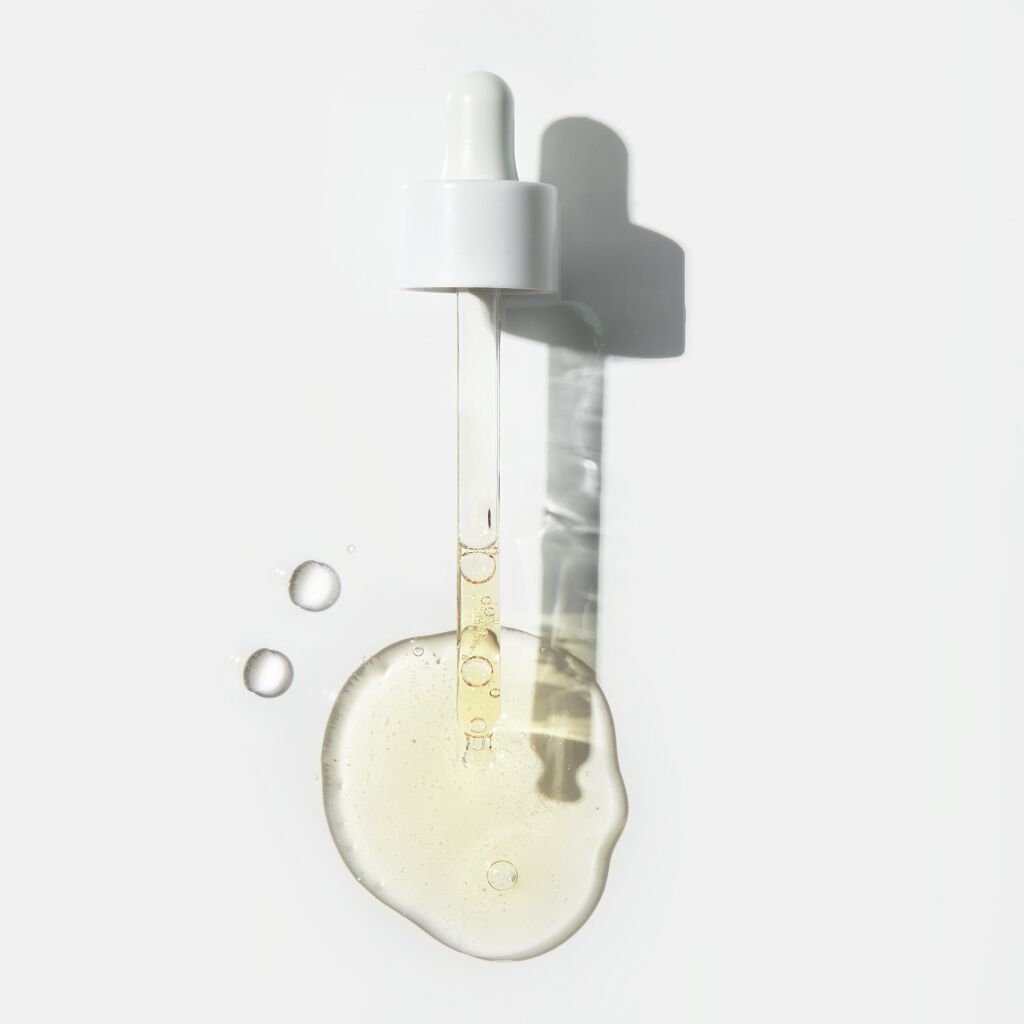
4 Benefits of Hair Oil
Hair oil has become increasingly popular as today’s natural-hair ingredient movement unfolds. Most of us won’t be surprised to find plant-based oils like coconut, sesame, jojoba, and argan oil front and center in the haircare aisles.
The benefits of hair oil can make the difference between dull, lifeless strands and smooth, lustrous locks. Whether you have healthy or slightly damaged hair, using a natural oil for your hair can make a difference you not only see, but feel.
Why Should I Use Hair Oil?
Though no hair oil is the same, many of them can provide significant benefits for your hair and scalp. There are several different types of hair oil that are accessible for all types of hair, from fine to coarse.
The potential benefits of oiling hair include:
- Strengthening hair follicles
- Nourishing the scalp
- Protecting the hair from heat and damage
- Hydrating hair and preventing frizz
4 Benefits of Hair Oil
Before diving into the benefits of hair oil, it’s important to note that not all hair oils provide the same benefits. While some can help smooth your scalp, others should not be applied directly to the scalp.
When it comes to learning how to use hair oil, let’s uncover the science behind some of the hair oil perks that can help keep your hair shiny and healthy from morning to night.
1. Strengthens Hair
First up—hair oil can strengthen the hair itself. This is a critical benefit, as weak, brittle, damaged hair can be felt by all lifestyles and environmental aggressors. And fragile hair lacks luster, leading to a few more disgruntled glares at the mirror and the overuse of your go-to bad hair day hat or hair band.
Hair oil containing coconut oil, sesame oil, or mustard oil contains antioxidants that can strengthen hair by penetrating deeply into the follicle layers and armoring it against oxidative stress.
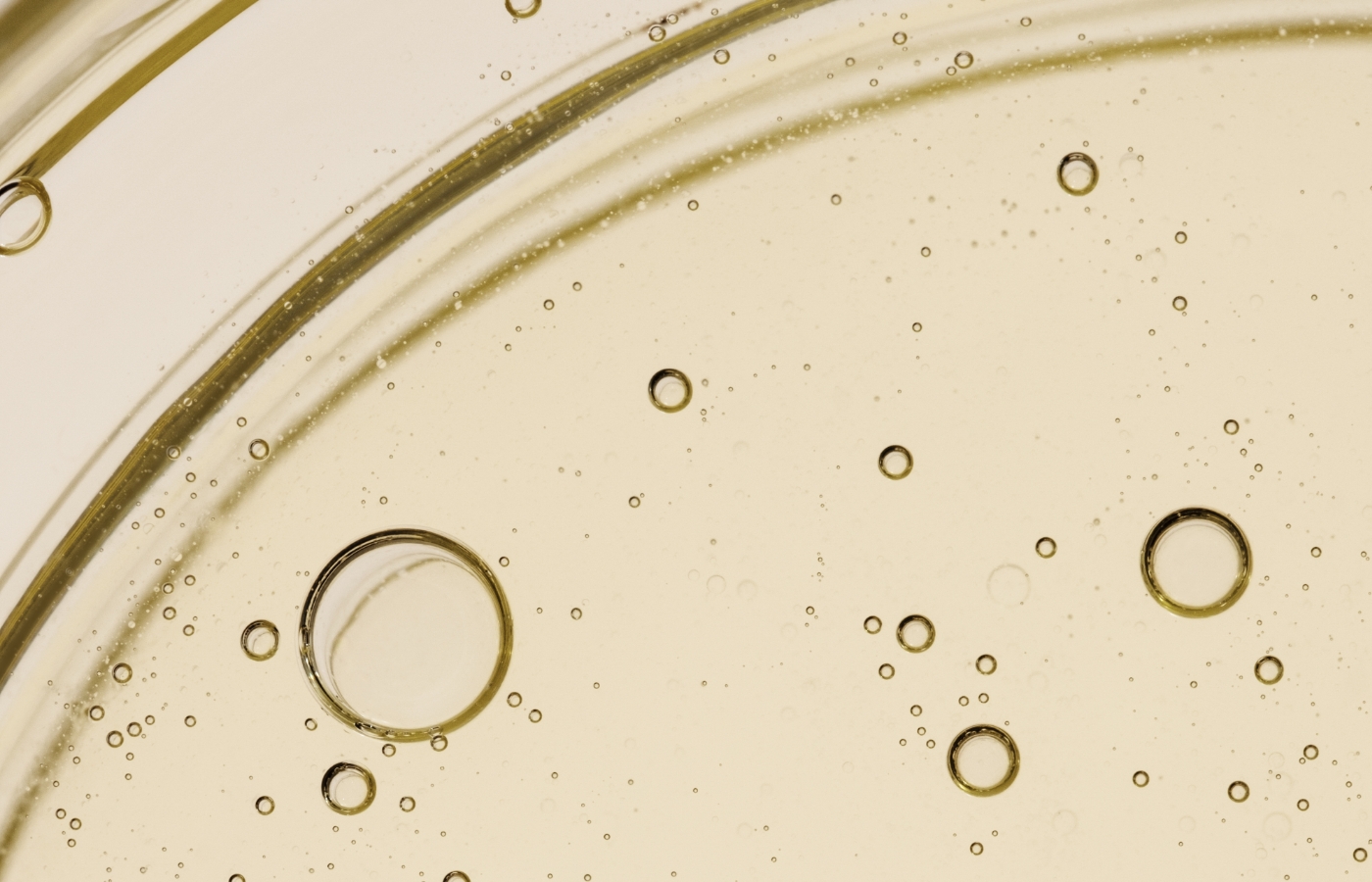
2. Nourishes Scalp
The scalp is an often overlooked component of healthy hair, but one thing’s for certain—a happy scalp can help sustain healthy hair. Some hair oil benefits work their magic on the scalp.
The types of hair oil containing the following ingredients can have antibacterial and antifungal properties that can help protect your dry scalp from build-up:
- Coconut oil
- Olive oil
- Amla oil
Other oils like argan oil can help your scalp regulate natural sebum production, which may help balance your scalp’s moisture levels.
3. UV Protection
When you’re relaxing outside in the sunshine, your mane can benefit from sun protection. UV rays can dry out your hair and scalp just as they can your skin.
The following oils contain UV-fighting properties that can protect hair from UV rays, shielding your locks from impending damage:
- Almond oil
- Olive oil
- Sesame oil
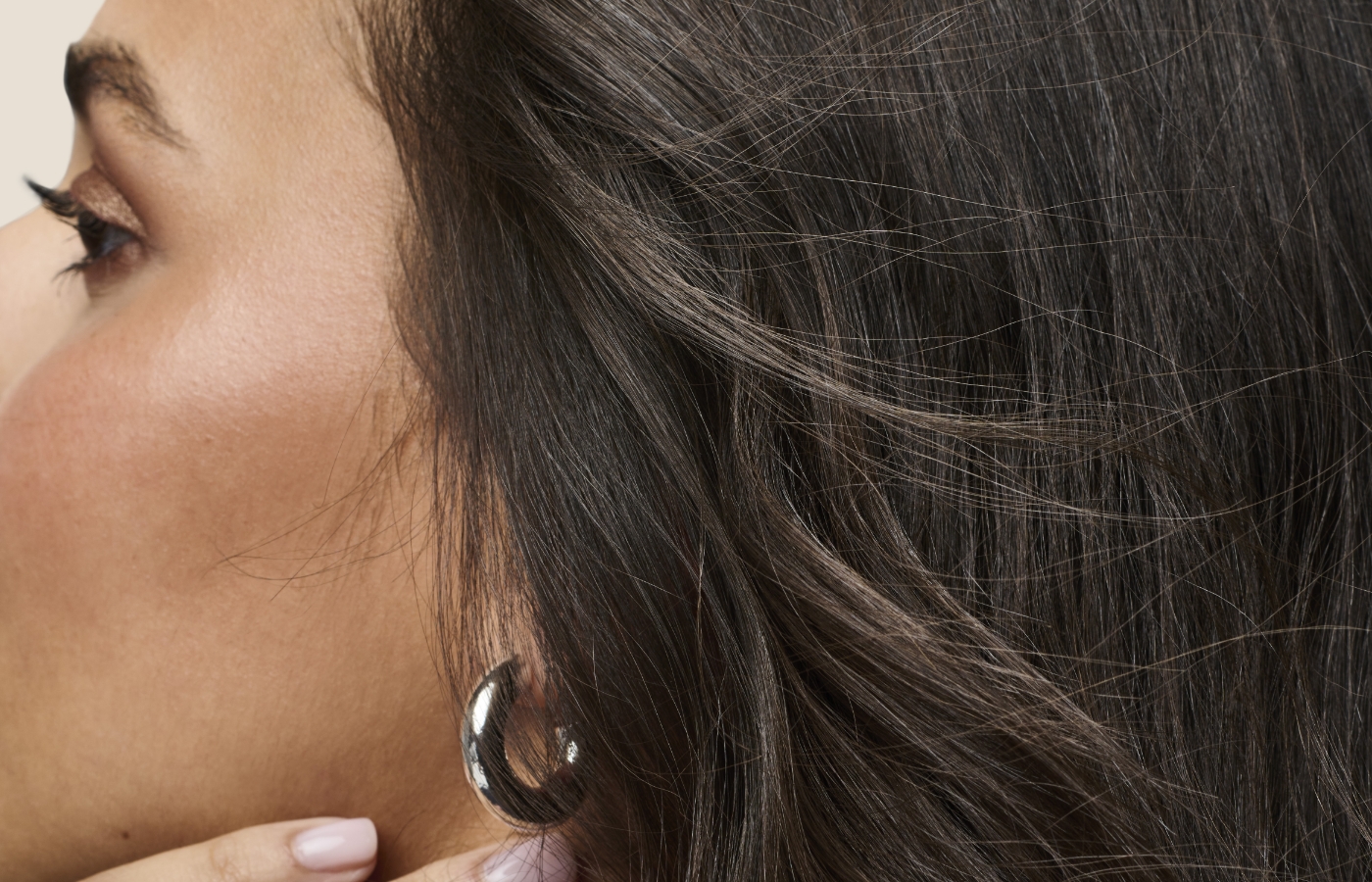
4. Moisturizes Hair and Prevents Frizz
Among maybe the most appealing benefits of hair oil is its potential for moisture and defrizzing. It can be frustrating at best when frizz-fighting products wear off quickly and leave you with a head of heavy hair.
Oils like argan oil and castor oil are both lightweight and nourishing, so they can help moisturize your hair without weighing it down. Haircare oils work to seal in moisture and lock humidity out.
Other products like a smoothing shampoo and smoothing conditioner can also help tame frizz so you can avoid patting down any stray hairs that have a mind of their own.
Hair Oil Benefits: Not One-size-fits-all
Hair oils are not all created equal. For example, while some may soothe a bothered scalp, others shouldn’t go near the scalp at all.
Your hair is beautifully unique to you, so the best way to know which hair oil to use is to try it on for size. Here’s a head start in the right direction:
- For dry scalps, try coconut oil
- For oily scalps, argan oil may be just the thing to balance your scalp’s oil levels
- For those who experience buildup, there’s olive oil
- Dry hair may benefit from castor oil
- Hair damaged by bleaching, dye, treatments, or heat may love sesame oil
- For frizzy hair, find a smoothing and strengthening effect in almond oil
- For a dose of UV protection, reach for mustard oil
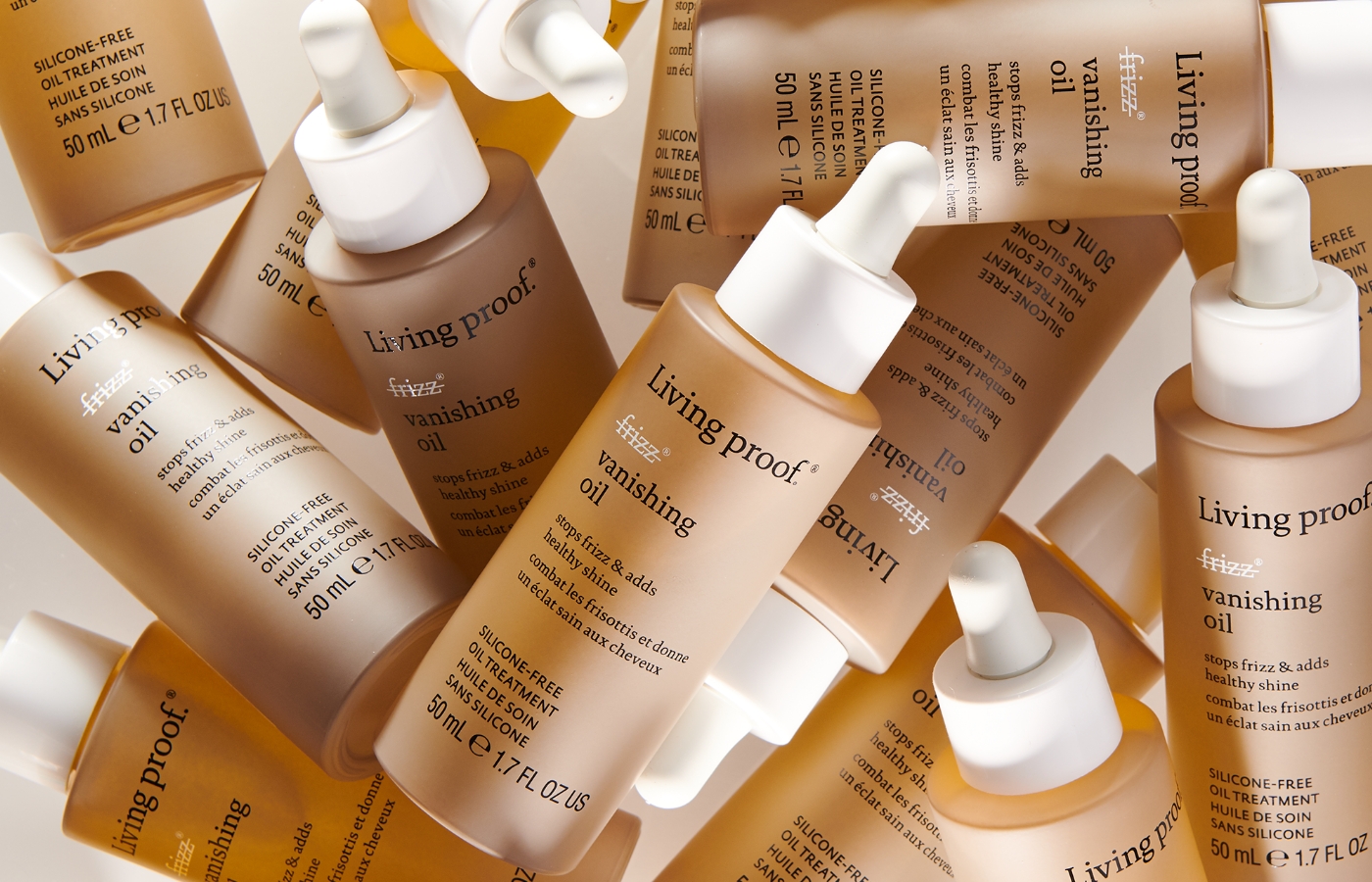
How to Choose Hair Oil
Because we can’t actually walk with you through the haircare aisles, it can be intimidating to land on the right one. To start, look for the following factors when selecting your hair oil product:
- Lightweight – Some hair oil tends to weigh hair down, removing volume and natural lift. Look for formulas that are lightweight, especially if you have fine hair.
- No oily residue – If you try a hair oil and it leaves you with oily hair, that’s not likely the outcome you desired. Quality hair oil should work with your natural hair oil to balance your hair, leaving it soft and smooth.
- Contains added nutrients – Make sure your hair oil is working in your favor. Natural ingredients are great foundations for nutrients, but hair oil that contains extra boosts of vitamins and minerals can nourish and moisturize your hair.
- Free of silicones – Silicones and sulfates may smooth the top layer of your hair, but they can also prevent nutrients from getting in. Look for hair oil free of these synthetics to ensure your hair type can benefit from the natural oil’s nutrients.
Unlock Natural, Nourished Locks With Living Proof
Hair oil is a safe and effective way to liberate your hair from damage and dryness. A well-oiled routine can transform your hair into its healthiest and most luscious form. An occasional hair shaft and scalp massage can help, too.
At Living Proof, we take hair health to heart when it comes to our hair products online. We dig deep to thoughtfully design products engineered with both innovative science and powerful ingredients. The result? A solution unlike any other—and a label that keeps its promises.
Try our lightweight hair oil for a nourishing, protective, silicone, and sulfate-free treatment to give your hair the care it deserves. We are the science. You’re the living proof.
- National Library of Medicine. Hair Oils: Indigenous Knowledge Revisited. https://www.ncbi.nlm.nih.gov/pmc/articles/PMC9231528/
- National Library of Medicine. Single hair fiber assessment techniques to discriminate between mineral oil and coconut oil effect on hair physical properties. https://pubmed.ncbi.nlm.nih.gov/32949101/
- National Library of Medicine. Alternative Protocol for Hair Damage Assessment and Comparison of Hair Care Treatments. https://www.ncbi.nlm.nih.gov/pmc/articles/PMC7276157/

